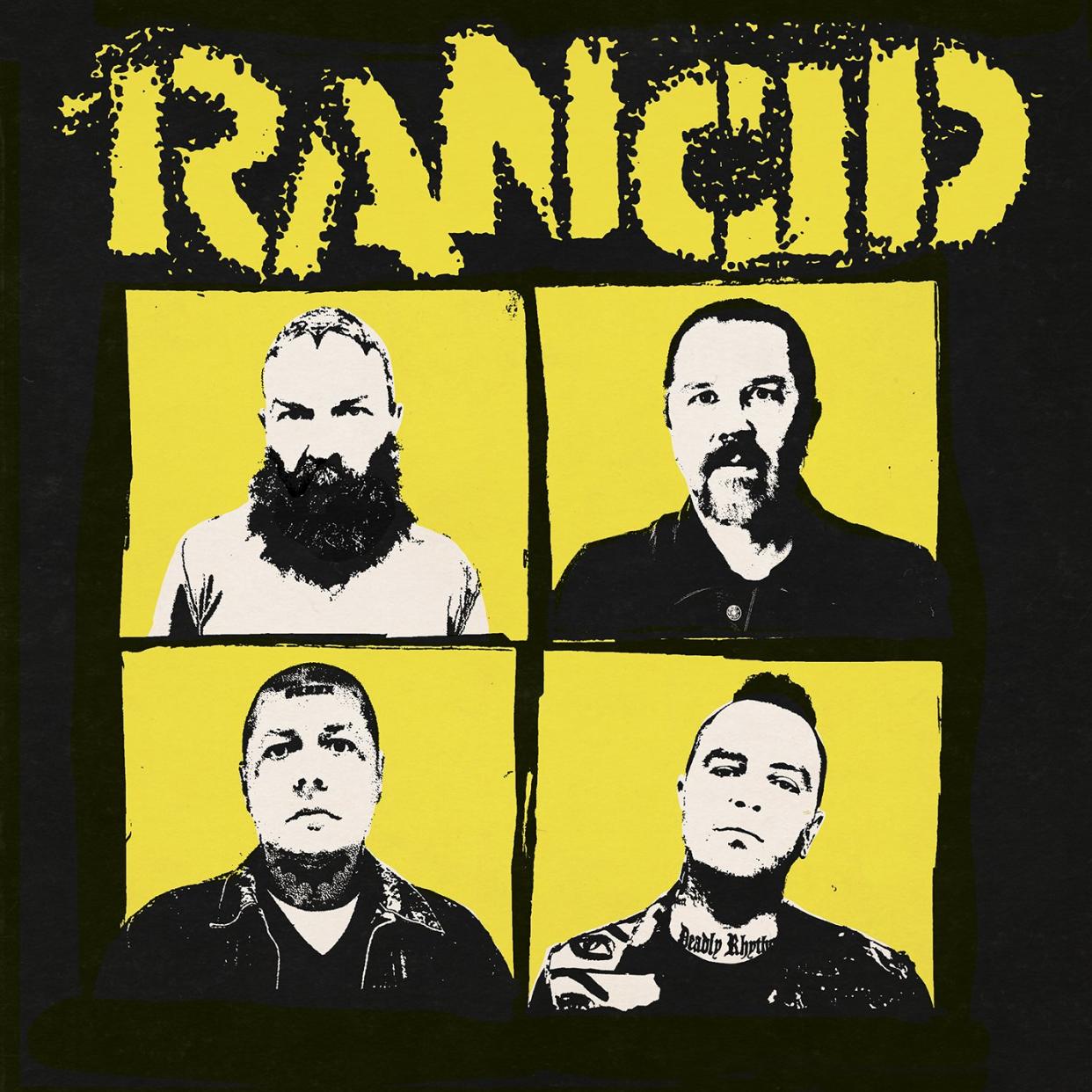Rancid Stays True to Its Radical Roots on Tomorrow Never Comes

It’s hard to think of a band with a career trajectory similar to Rancid. When punk exploded in the ‘90s, it was always the band repping first-wave British punk acts like U.K. Subs and GBH. And despite the mainstream success of singles such as “Ruby Soho” and “Time Bomb,” Rancid always stayed true to that foundation while peers such as Green Day and the Offspring embraced a more commercially successful sound.
Over the past 30 years, something else has happened: Rancid has become the credible punk act today’s safety pin-clad youth look to for inspiration, such as the Interrupters, who have worked with vocalist/guitarist Tim Armstrong as both a producer and the head of Hellcat Records. Fittingly, Rancid’s 10th full-length, Tomorrow Never Comes, serves as an example of how to grow out your liberty spikes gracefully.
More from Spin:
Operation Ivy’s Tim Armstrong and Jesse Michaels Re-Team in Bad Optix
Rancid, Bad Religion, Dropkick Murphys Lead 2023 Punk Rock Bowling Lineup
Despite Rancid’s well-documented comparisons with the Clash, you’ll be disappointed if you’re expecting a modern-day equivalent to the latter’s triple-album Sandinista! Instead, Tomorrow Never Comes features 16 songs with a median length of under two minutes. Correspondingly, Rancid sets the tone early with the album’s title track, which includes everything you want in a Rancid song: buzzsaw guitars, infectious melodies, and Armstrong and Lars Frederiksen’s instantly recognizable vocals (bassist Matt Freeman also adds his own growling accompaniment to the chorus).
To be clear, Tomorrow Never Comes has little in common sonically with the band’s 1995’s rightfully worshiped …And Out Come the Wolves. But the members who played on that album are now in their 50s and the fact that the band isn’t trying to recreate their past while still showing no signs of mellowing out is refreshing in today’s nostalgia-driven musical landscape (although like Laura Jane Grace, we wouldn’t mind an Operation Ivy reunion).
Songs such as the electrified sea shanty “Devil In Disguise” and bouncy sing-along “It’s a Road to Righteousness” see Rancid focusing on its strengths, which includes an undeniably powerful rhythm section and Armstrong’s signature warble. In fact, you can almost picture a battered Gretsch hollowbody hanging between his legs as Armstrong introspectively muses, “I look upon the world we’re in, twilight of my life appears” on the latter track.
Fans of Rancid classics such as “Maxwell Murder” will appreciate Freeman’s nimble-fingered opening to “Magnificent Rogue” and “Eddie the Butcher.” Similarly, Frederiksen fans will revel in the subtle dynamics of “Drop Dead Inn,” which takes the listener on a two-minute-long journey of existential joy and doubt. The sinister sounding “Mud, Blood, & Gold” further adds to the outlaw aesthetic of the album, while “The Bloody & Violent History” chronicles the corruption of San Francisco’s seedy Barbary Coast, a locale tied to the album’s conceptual center.
Admittedly, Rancid doesn’t venture too far outside of its sonic comfort zone on Tomorrow Never Comes and 30 seconds into each song, it’s not difficult to guess their structure and how they’ll likely resolve. Rather than being a weakness, this is one of the album’s strengths. It might not be a journey to the end of the East Bay, but Tomorrow Never Ends is a journey to the act’s next collective destination.
In that spirit, the album ends with “When the Smoke Clears,” a working-class anthem which finds band members harmonizing together as they sing about love and redemption. If Armstrong’s verses are almost indecipherable at times, that’s OK — ultimately, it’s less about the words and more about a feeling.
To see our running list of the top 100 greatest rock stars of all time, click here.
The post Rancid, Bad Religion, Dropkick Murphys Lead 2023 Punk Rock Bowling Lineup appeared first on SPIN.
